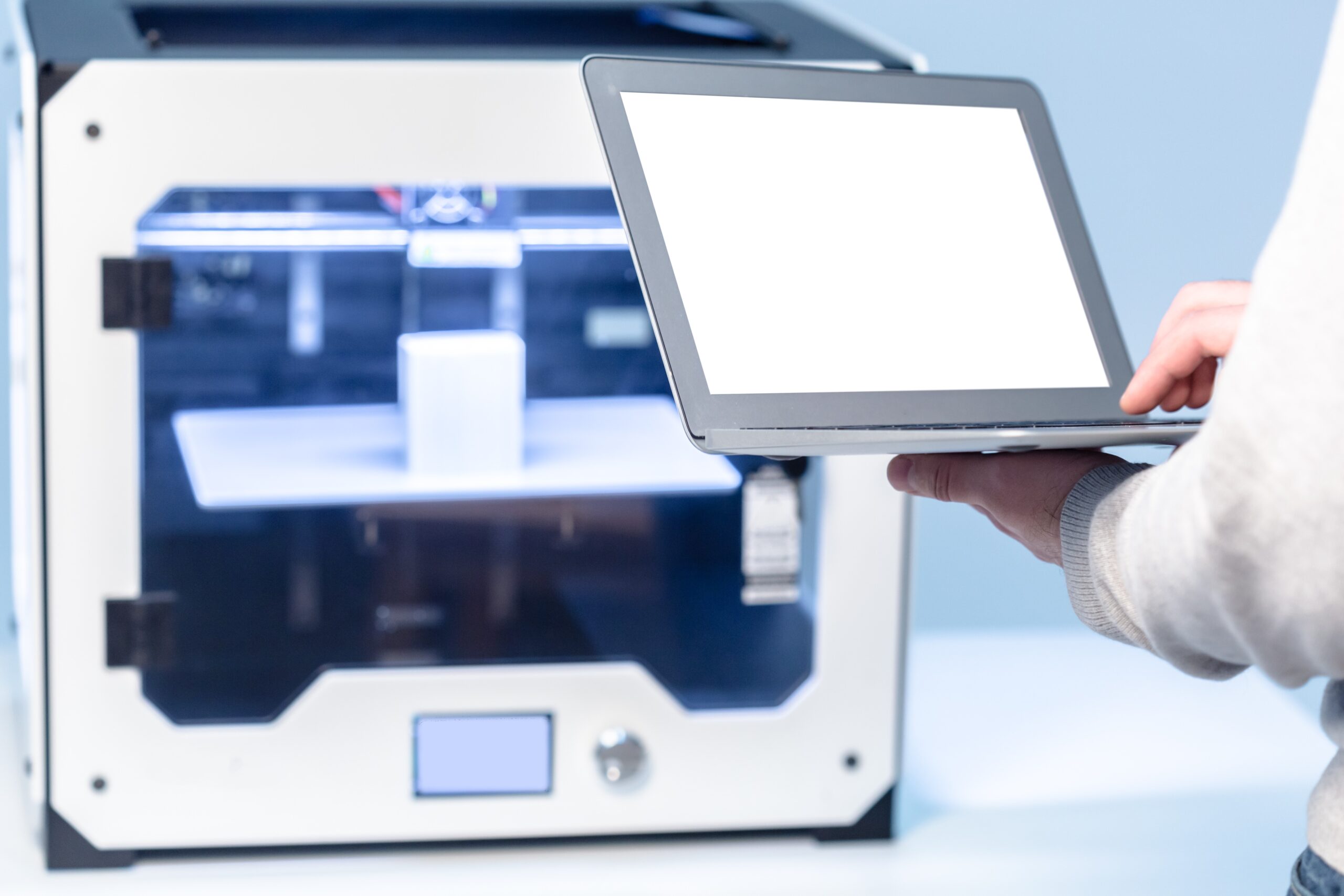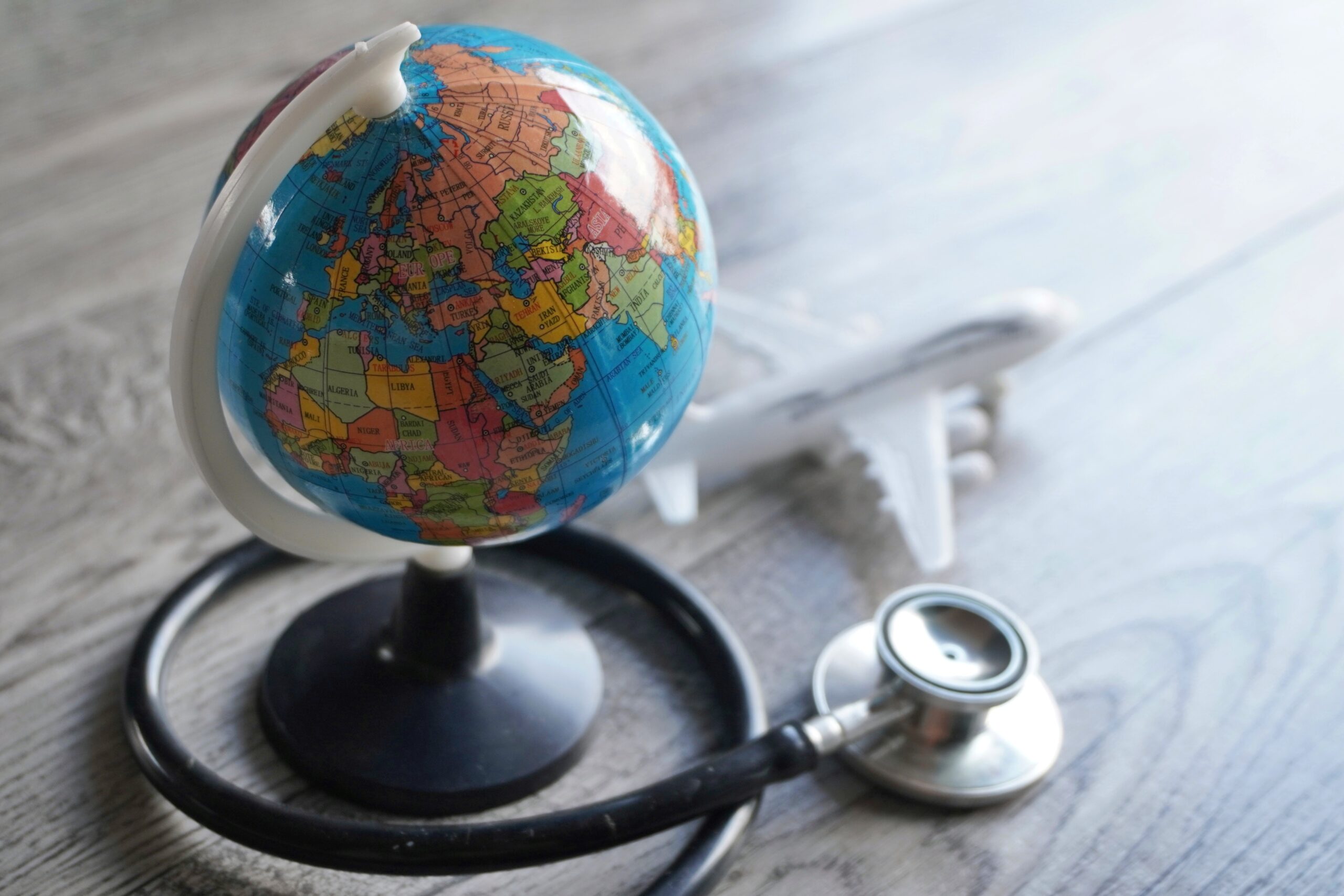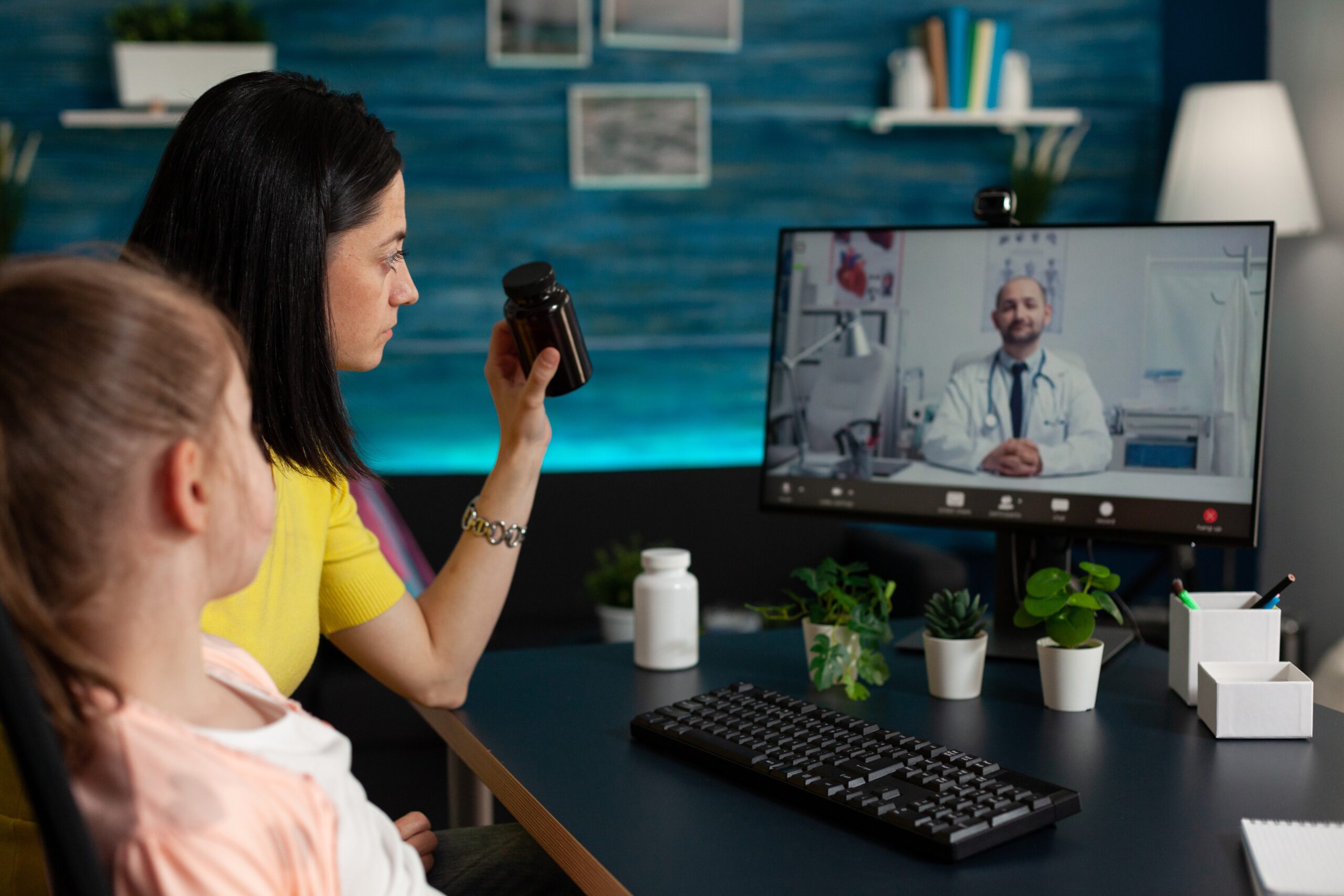Traveling is an exciting way to discover new places and meet different cultures. However, paying proper attention to oral hygiene during this process not only enhances the quality of your travel experience but also protects your overall health. Paying attention to oral care before and after travel is very important to prevent potential health problems. …
Traveling is an exciting way to discover new places and meet different cultures. However, paying proper attention to oral hygiene during this process not only enhances the quality of your travel experience but also protects your overall health. Paying attention to oral care before and after travel is very important to prevent potential health problems.
The Impact of Pre-Travel Oral Hygiene on the Travel Experience and Preparation Process
The importance of pre-travel oral hygiene on overall health
Prioritizing oral hygiene before travel not only protects your oral health but also has positive effects on your entire body health. Problems such as bacteria in the mouth, gum infections, and tooth decay can weaken your immune system and increase inflammatory processes in your body. Such issues during travel can disrupt your comfort and make the treatment process more difficult. Therefore, ensuring regular and effective oral care before travel is of great importance.

Prevention of oral health problems that may be encountered during travel
Oral health problems are common, especially during long journeys. Issues such as dry mouth, bad breath, tooth sensitivity, and gum inflammation can arise from neglected oral care during travel. Different climate conditions and unusual dietary habits can also trigger these problems. Therefore, preparing consciously before travel helps prevent such troubles throughout the journey.
Pre-travel tooth brushing, flossing, and mouthwash habits
The basic steps of oral hygiene before travel, such as tooth brushing and flossing, should not be neglected. Especially flossing supports gum health by cleaning plaque and food debris between teeth. Additionally, an oral care routine supported by mouthwashes with antibacterial properties helps reduce the amount of bacteria in the mouth. Regularizing these habits before travel plays a major role in protecting your oral health during the journey.
The importance of a pre-travel dental check-up and necessary actions
As an important part of travel planning, a dental check-up must be done before the trip. This check-up allows for early diagnosis and treatment of existing cavities, gum problems, or other oral health issues. A professional evaluation is essential to prevent emergencies that may occur during travel. Your dentist can provide personalized oral care recommendations and inform you about points to pay attention to during your trip.
Oral hygiene products that should be in the travel bag (toothbrush, toothpaste, mouth spray, floss, etc.)
To maintain your oral hygiene during travel, you need to have the right products with you. Your travel bag should definitely include the following items:
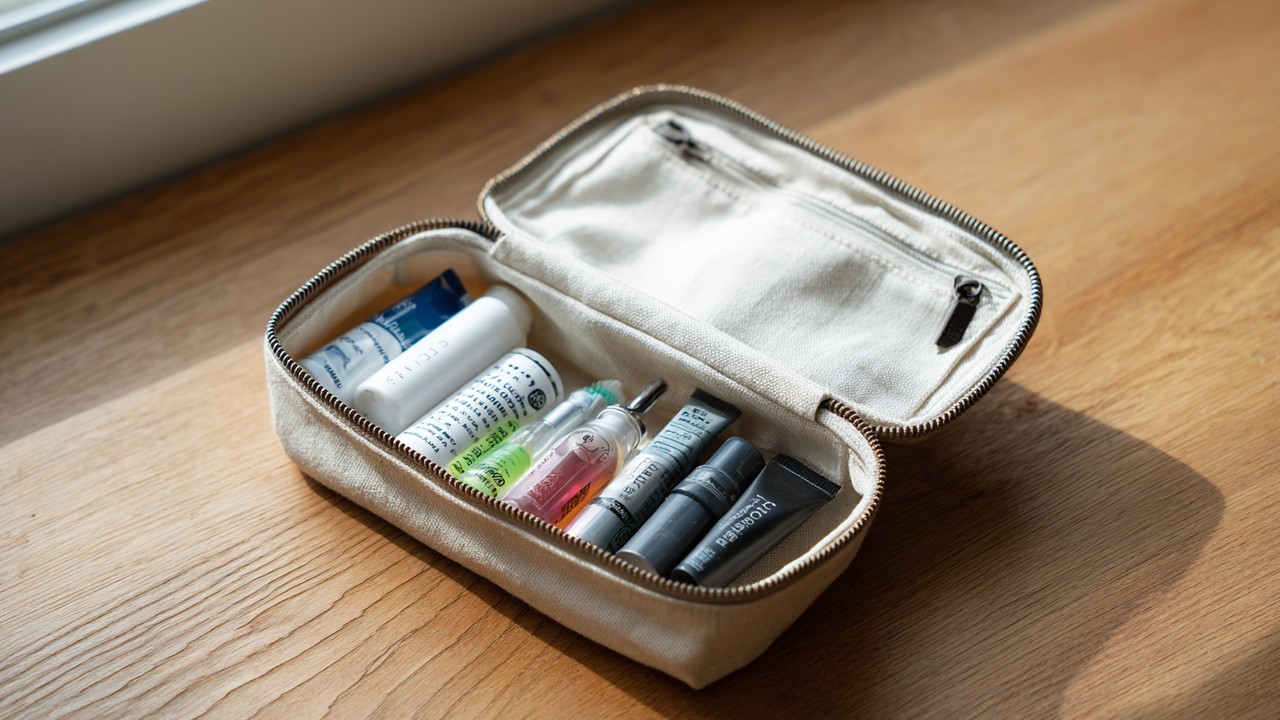
- Travel-size toothbrush: Easy to carry and practical to use
- Toothpaste: Fluoride-containing and suitable for tooth sensitivity can be preferred
- Floss: Indispensable for cleaning between teeth
- Mouth spray or mouthwash: Ideal for a fresh mouth during travel
- Spare toothbrush: Should be kept ready for replacement on long trips
Along with these products, especially on long journeys, it is also beneficial to have natural ingredient chewing gums and plenty of water to prevent dry mouth.
Selection of oral care products according to travel route and duration
The duration and route of your travel plan are decisive in choosing the oral care products you will use. While basic products are sufficient for short city trips, longer trips or routes with harsh natural conditions require more durable and protective products. For example, products that prevent dry mouth should be preferred in high altitudes or dry climates. Additionally, the water quality and hygiene conditions of the region you will travel to should also be taken into account when selecting oral care products.
Conscious oral hygiene preparation before travel prevents possible oral health problems you may encounter during your journey, allowing you to have a more comfortable and healthy trip. This way, you will both feel good and fully enjoy your travel experience.
Practical tips and habits to maintain oral hygiene during travel
The importance of not neglecting oral hygiene during travel
Neglecting oral hygiene during travel, whether long or short, can lead to serious problems in your oral health. During travel, not brushing teeth regularly and neglecting oral care accelerates plaque formation, paving the way for tooth decay and gum diseases. This situation increases the risk of infections you may encounter along the way and can spoil your travel enjoyment. Additionally, socially uncomfortable situations such as bad breath negatively affect your travel experience. Therefore, the care given to oral hygiene, even during travel, is of great importance both for health and social reasons.
Practical methods for oral care in transportation vehicles such as airplanes, buses, and trains
Maintaining oral care during travel, especially in public transportation vehicles like airplanes, buses, or trains, may seem difficult but is possible with practical methods. These vehicles usually have limited space and water resources; therefore, the following suggestions will be useful:
- Travel-sized toothbrushes and mini toothpaste allow you to clean your teeth during short breaks or before arrival.
- Alcohol-free mouth sprays provide freshness in the mouth and prevent bad odor.
- Pre-packaged, practical dental floss options should be preferred for flossing.
- Carrying a water bottle with you increases water consumption and prevents dry mouth for oral cleaning.
These small but effective habits greatly contribute to maintaining your oral health throughout your journey.
Travel-sized oral care products you can carry with you
Products you keep in your bag to maintain oral hygiene during travel should be small in size and easy to use. Here are some recommended travel-sized oral care products:
- Mini toothbrushes and foldable models: Easily carried in a bag or pocket.
- Travel-sized toothpaste tubes: Small sizes compliant with flight and bus regulations.
- Mouth spray: Ideal for freshness in the mouth, especially on planes or in dry environments.
- Dental floss packs: Single-use or small packages for practical cleaning.
- Natural ingredient chewing gums: Prevent dry mouth and increase saliva production.
These products provide great convenience to ensure you do not neglect your oral care along the way.
Appropriate times and methods for brushing teeth and oral cleaning during travel
Determining the best times to brush your teeth during the journey is important for maintaining your oral health continuity. If possible, brush your teeth at least twice a day, after waking up in the morning and before going to bed at night. Additionally, during long trips, you can apply the following methods during short breaks after meals to support your oral hygiene:
- Using a lightly moistened toothbrush or mouth spray to clean food residues accumulated in the mouth.
- Checking between teeth with dental floss.
- Chewing sugar-free gum, which increases saliva secretion and contributes to natural cleaning.
These habits are effective in preventing problems caused by bacteria accumulating in the mouth during travel.
Water consumption and gum use to prevent dry mouth during travel
Dry mouth is a common condition encountered during travel that negatively affects oral health. Especially on airplane trips, the dry cabin air reduces saliva secretion. This situation increases the risk of tooth decay and bad breath. To prevent dry mouth:
- Drinking sufficient amounts of water helps maintain the moisture balance inside the mouth.
- Sugar-free gums support oral cleanliness by increasing saliva production.
- Avoiding caffeinated and alcoholic beverages as much as possible reduces water loss in the body and mouth.
These simple measures support your oral hygiene during travel and contribute to a comfortable journey.
The relationship between healthy eating and oral health during travel (avoiding sugary and acidic foods)
Different flavors and snacks encountered during travel can directly affect oral health. Especially sugary and acidic foods damage tooth enamel and accelerate cavity formation. To protect your oral health throughout the journey:
- Choose snacks that are low in sugar and high in nutritional value.
- Avoid acidic drinks and excessively sweet foods.
- Keep a toothbrush or mouth spray with you to maintain oral cleaning habits after meals.
These dietary habits prevent deterioration of your oral health during travel and positively impact your overall health.
Maintaining oral hygiene during travel is a critical factor for both travel comfort and health. Continuing oral care with practical methods prevents possible problems and allows you to enjoy every moment of your journey.
Post-Travel Oral Hygiene Precautions and Improvement Methods
Possible problems and symptoms in oral health after travel (bad breath, tooth sensitivity, gum problems)
When the trip ends, some oral health problems may arise, usually due to disruption of oral hygiene routines. The most common issues include bad breath, tooth sensitivity, and gum problems. Irregular eating habits during travel, insufficient tooth brushing, and dry mouth are the main causes of these problems.
- Bad breath generally results from bacteria and food debris not being cleaned from the mouth.
- Tooth sensitivity is a discomfort against hot or cold foods and drinks and is usually related to enamel wear.
- Gum problems may appear as redness, bleeding, and swelling, and if left untreated, can develop into more serious diseases.
If any of these symptoms occur, extra attention should be given to oral care after travel.
Deep Oral Cleaning Practices After Travel
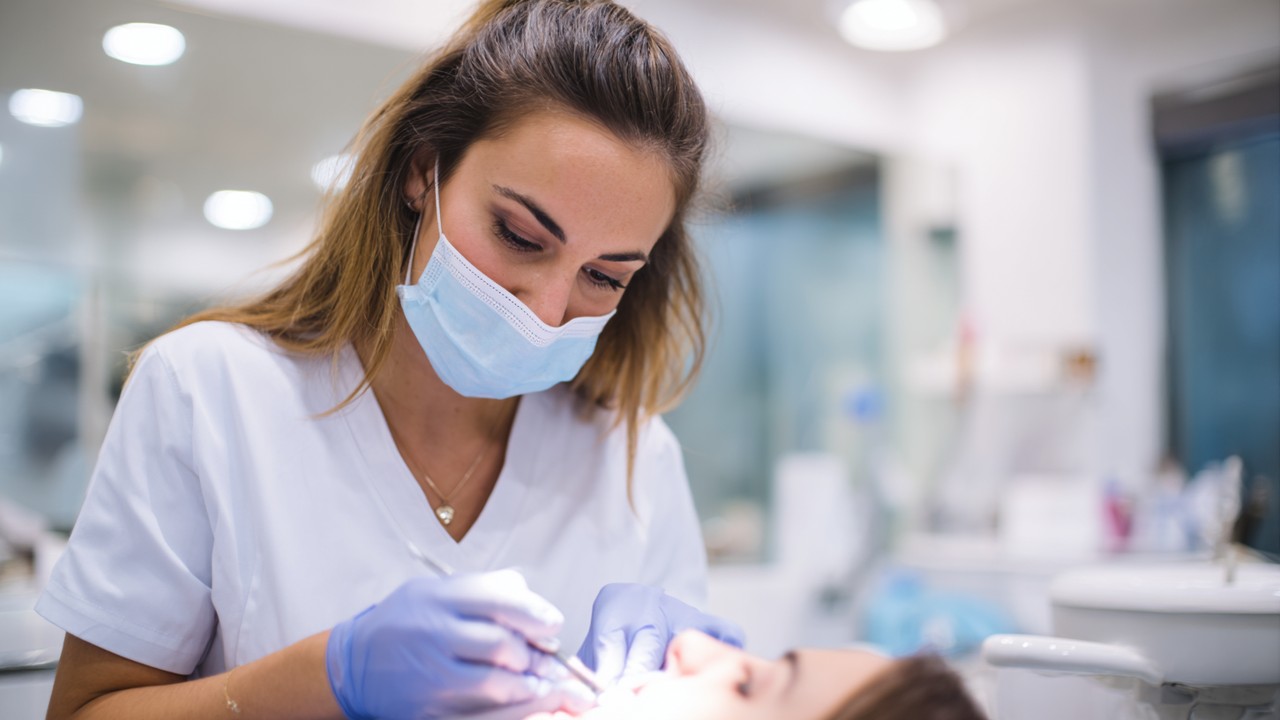
After returning from a trip, performing a deep cleaning beyond your daily oral care routine is an important step to restore your oral health. The following practices are recommended during this process:
- Consulting a dentist for professional dental cleaning ensures the complete removal of tartar and plaque.
- Longer and more careful tooth brushing sessions should be done at home; especially targeting the back surfaces of the teeth and hard-to-reach areas of the mouth.
- The use of dental floss helps clean debris accumulated between teeth.
- Antibacterial mouthwashes can reduce the number of bacteria in the mouth.
These practices support regaining healthy oral conditions before travel.
The Importance of a Dental Visit After Travel and Recommended Check-ups
Even if you do not experience any problems with your oral health after traveling, regular dental check-ups are very important. A professional examination is essential to detect the effects of disrupted oral hygiene habits during the trip early and to take necessary interventions. Your dentist can perform the following checks:
- Presence and progression of tooth decay
- Evaluation of gum health and possible signs of inflammation
- General condition of oral tissues and detection of possible injuries
- Professional cleaning and care recommendations if necessary
These check-ups play a critical role in protecting your oral health and preventing potential future problems.
Restoring Oral Hygiene Habits Disrupted During Travel
The intensity and changes in habits experienced during travel can disrupt your oral hygiene routine. After traveling, these habits need to be readjusted. To achieve this:
- Make daily tooth brushing and flossing regular
- Use oral care products properly and replenish needed items
- Return to healthy eating habits and reduce consumption of sugary foods
- Drink plenty of water to prevent dry mouth and use mouth spray if necessary
These steps help restore oral hygiene habits disrupted during travel in a short time.
Tips for Returning to Oral Care Routine After Travel
Some practical tips are very useful to restore your oral care routine to its healthy state after traveling:
- Prioritize regular tooth brushing habits in the morning and evening. This is a fundamental step in maintaining your oral health.
- Make flossing an indispensable part of your daily routine.
- Enhance bacterial control by supporting cleaning with mouthwash.
- If you were satisfied with the products you used during travel, include them in your regular care routine.
- Pay attention to your diet and avoid excessively sugary and acidic foods.
- If necessary, get professional advice from your dentist to support your oral care.
These tips help you reestablish your oral hygiene after travel and make sustainable care a habit. This way, you protect your oral health and prevent potential problems in the future.
The Connection Between Travel and Oral Health: Scientific Data and Expert Opinions
Effects of Changing Environmental Factors on Oral Health During Travel
Environmental changes encountered during travel can have significant effects on oral health. Factors such as different climate conditions, air quality, and the mineral content of water directly affect the balance of the oral environment. Especially in dry and cold climates, dry mouth increases, which leads to a decrease in saliva secretion. Since saliva plays a critical role in controlling bacteria in the mouth and protecting tooth enamel, disruption of this balance negatively affects oral health.
Additionally, the hardness level of the water used in different regions or the amount of fluoride it contains can lead to positive or negative effects on tooth enamel. In some areas, low fluoride levels increase the risk of tooth decay, while high fluoride content can cause staining on the enamel. Therefore, it is necessary to pay extra attention to oral care by considering the environmental characteristics of the traveled region.
Oral Dryness During Long Journeys and Its Impact on Dental Health
Long hours of travel, especially air travel, are among the most common causes of oral dryness. The low humidity in the cabin air naturally reduces saliva production. Saliva is a natural defense that cleans bacteria in the mouth and prevents acid formation. In cases of oral dryness, this protective mechanism weakens, increasing the risk of tooth decay and gum disease.
Additionally, oral dryness causes discomfort in the mouth and bad breath. Therefore, frequently drinking water, chewing sugar-free gum, and using mouth spray if necessary are effective methods to prevent oral dryness during long journeys. Experts emphasize that these practices, which support saliva secretion, are critical for maintaining dental health.
Effects of Stress and Irregular Eating Habits on Oral Hygiene During Travel
Increased stress and irregular eating habits associated with travel are among the factors that negatively affect oral hygiene. Stress can weaken the immune system, paving the way for gum diseases. Especially intense travel schedules, disrupted sleep patterns, and mental pressure create direct negative effects on oral health.
Irregular eating habits, on the other hand, lead to an increase in tooth decay due to frequent snacking and increased consumption of sugary foods. The disruption of healthy eating habits during travel causes an increase in oral bacteria and consequently deterioration of oral hygiene. Experts emphasize the need to recognize and regulate stress-related oral habits, highlighting the importance of balanced nutrition during the travel process.
Recommendations of Dentists Regarding Oral Hygiene Before and After Travel
Dentists offer some important recommendations regarding oral hygiene before and after travel. Before traveling, a professional check-up is definitely recommended to detect and treat any potential dental problems. Additionally, information is provided about the selection and proper use of oral care products to be used during the journey.
After travel, it is advised to visit the dentist to correct disrupted oral hygiene habits and to reassess oral health. Experts emphasize not neglecting regular tooth brushing, flossing, and antibacterial mouthwash applications. At the same time, increasing water consumption to prevent dry mouth and stress management recommendations are frequently mentioned.
The Contribution of Maintaining Oral Health During Travel to Overall Body Health
Maintaining oral health is not only a local care but also an important part of overall body health. When proper attention is given to oral hygiene during travel, the risk of infections decreases and the burden on the immune system is reduced. This contributes to the prevention of other illnesses that may be encountered during the journey.
Scientific studies have shown that oral health is linked to systemic diseases such as heart diseases, diabetes, and respiratory infections. Paying attention to oral hygiene during stressful and challenging periods like travel increases the body's overall resistance, allowing you to have a healthy trip. Therefore, maintaining oral health is one of the key factors that positively affect your travel experience.
The care given to oral hygiene during travel plays a critical role in protecting both oral health and overall health. Acting with this awareness makes the travel process healthier and more comfortable.



